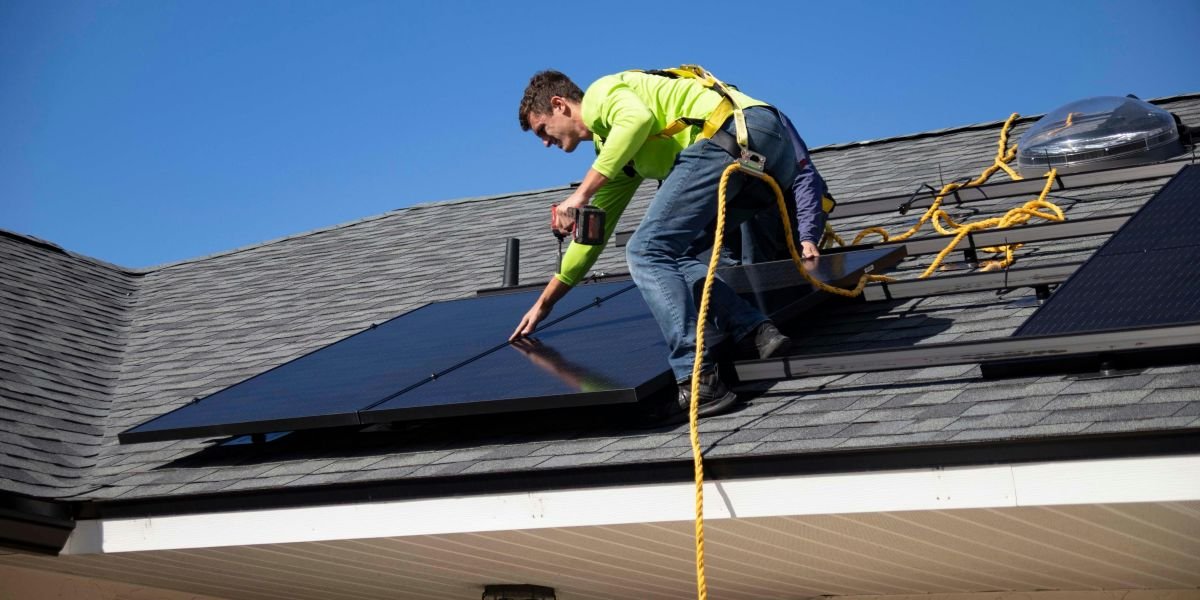In an era increasingly defined by the need for renewable energy solutions and sustainable living, homeowners are looking towards solar energy as a viable, eco-friendly alternative to traditional power sources. Solar energy not only offers the promise of reducing utility bills but also plays a crucial role in minimizing carbon footprint. This guide provides a comprehensive look into upgrading your home with solar energy, exploring everything from solar panels and battery storage to electric vehicle (EV) chargers and main panel upgrades.
Understanding Solar Energy
Solar energy harnesses the power of the sun’s rays to generate electricity for your home, reducing reliance on non-renewable energy sources and decreasing greenhouse gas emissions. The process involves installing solar panels, usually on your roof, which collect sunlight and convert it into electricity.
The Benefits of Going Solar
- Cost Savings: Over time, solar energy can significantly reduce your electricity bills, as the sun provides a free power source once you’ve covered the initial installation costs.
- Environmental Impact: Solar energy is a clean, renewable power source that reduces carbon emissions, contributing to a healthier planet.
- Increased Property Value: Homes with solar energy systems often see an increase in property value, making it a smart investment for the future.
- Energy Independence: Solar power can help reduce your reliance on the grid, especially when paired with battery storage systems.
Key Components of a Solar Energy System
Solar Panels
The heart of any solar energy system, solar panels come in various types, with monocrystalline and polycrystalline panels being the common ones. High-quality, Tier 1 black-on-black modules, like those offered by CostPro Solar, are designed for maximum efficiency and durability, standing up to weather, dirt, dust, and smog with minimal maintenance.
Battery Storage
Battery storage systems allow you to store excess solar energy generated during the day for use at night or during power outages, ensuring a consistent energy supply. This is particularly advantageous in areas with frequent power outages or high electricity rates during peak hours.
Main Panel Upgrades
Upgrading your main electrical panel is often necessary to accommodate the increased power capacity from your solar panels, allowing for more outlets and the potential for further home improvements. It’s a critical step in ensuring your home’s electrical system can handle your new solar setup.
EV Chargers
For those with or considering an electric vehicle, installing an EV charger is a logical step in making the most of your solar energy system. EV chargers can be powered by your solar panels, providing a clean, efficient way to charge your vehicle at home.
Planning Your Solar Energy Upgrade
Assessing Your Needs
Before diving into solar, it’s essential to assess your energy needs. Consider your current electricity usage, your home’s sun exposure, and roof space to determine the size and type of system that would suit your home. Professional solar energy providers can perform an assessment and provide recommendations based on your specific situation.
Choosing a Provider
Selecting the right solar energy provider is crucial. Look for companies with a strong track record, positive customer reviews, and a commitment to using high-quality materials. Providers like CostPro Solar, known for their solar energy education and leading installation timelines, can ensure a smooth transition to solar power.
Understanding Incentives
Numerous federal, state, and local incentives can help offset the initial cost of solar energy systems. Research available tax credits, rebates, and solar renewable energy certificates (SRECs) in your area to maximize your investment.
Beyond Solar: Enhancing Your Home’s Energy Efficiency
While solar energy can significantly reduce your reliance on traditional power sources, other upgrades can further enhance your home’s energy efficiency:
- LED Lighting: Switching to LED lighting reduces energy consumption and costs.
- Energy-Efficient Appliances: Upgrading to energy-efficient appliances can further decrease your home’s energy use.
- Smart Home Devices: Smart thermostats and energy monitors can help you manage your energy usage more effectively.
The Future is Bright
The transition to solar energy represents a significant step towards sustainable living and energy independence. By understanding the components of a solar energy system and planning your upgrade carefully, you can maximize the benefits of solar power for your home. With advancements in technology and a growing emphasis on renewable energy, companies like CostPro Solar are leading the charge toward a brighter, more sustainable future for homeowners.
As the solar industry continues to evolve, homeowners have more options than ever to reduce their environmental impact while saving on energy costs. By taking the leap into solar energy and beyond, you’re not just upgrading your home; you’re investing in a healthier planet for future generations.
Published by: Holy Minoza










